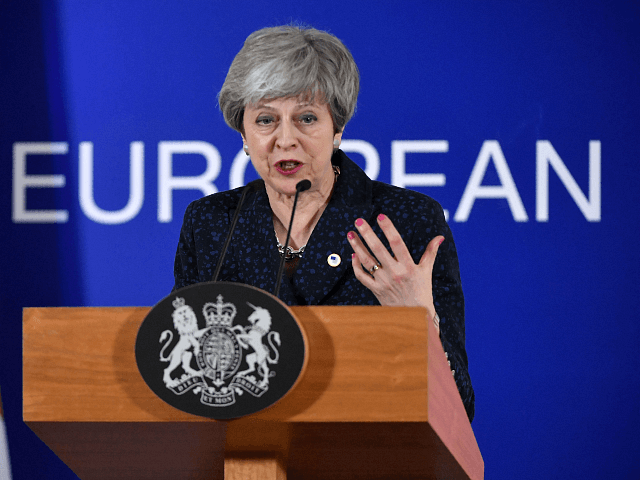Prime Minister Theresa May has yet to give up on her thrice-defeated Withdrawal Agreement with the European Union, according to reports, and is attempting to organise a fourth parliamentary vote on it next week.
The Withdrawal Agreement was crushed by a record 230 votes when it was put to a so-called “meaningful vote” in the House of Commons in January, and by an only marginally less devastating 149 votes on a second attempt some weeks later.
The most recent vote on the Withdrawal Agreement, this time without its accompanying Political Declaration and therefore technically not another “meaningful vote”, according to the relevant parliamentary arcana, took place on March 29th — the date when Mrs May had promised 108 times that Britain would finally leave the European Union.
If the deal had passed, a Brexit on the terms it laid out should have taken place on May 22nd — but it was defeated yet again, by 58 votes.
In normal circumstances, this would be considered a heavy, possibly resignation-worthy defeat for a sitting Government, but in the current climate it is being interpreted almost in a positive light, with a Downing Street spokesman noting optimistically: “We are at least going in the right direction.”
Prior to the 2017 snap election which followed the 2016 referendum on Brexit, the Prime Minister pledged that “no deal is better than a bad deal” and, legally, the United Kingdom has now defaulted to a clean break with the EU on No Deal terms on April 12th, per the terms of the short deadline extension she was granted by the European Council.
However, while over 80 percent of MPs were elected on Brexit manifestos, the vast majority of them are former Remainers, and they have expressed their opposition to a No Deal exit in any circumstances.
It is therefore expected that Mrs May will try to secure a much longer Brexit delay at an emergency summit of the European Council on April 10th if Meaningful Vote 4, or MV4, is a non-starter — with reports indicating she will seek to put Brexit off by nine months.
Some members of the Cabinet are urging Mrs May to come back to “no deal is better than a bad deal” and embrace a clean exit on World Trade Organization (WTO) terms.
“The Remainers clearly want a customs union as an alternative but there isn’t a majority for that in the party — it would destroy the [Tory] party,” one ministerial source told The Telegraph.
“We would end up with a Ramsay MacDonald-esque government where we would be completely at odds with our own party,” referring to the first-ever Labour prime minister — who ultimately ended up having to govern with on behalf of the Tories, after losing the support of his own backbenchers.
“It’s time to be bold, we need to embrace No Deal.”
Historians and constitutional experts have noted that Mrs May could stop MPs from preventing No Deal by calling on Queen Elizabeth II to prorogue — i.e. temporarily suspend — the parliamentary session, and simply waiting for No Deal to take effect as scheduled per the terms of the European Union (Withdrawal) Act 2018.
This would require a perhaps unlikely degree of resolve on the part of the Tory leader, however, almost certainly requiring her to remove a number of Cabinet ministers — most of whom are, like herself, former Remain campaigners — and precipitating her removal from office once Parliament reconvened.
On the other hand, her political fate appears to be sealed anyway, so she would not be incurring any cost she is not set to pay to pay already.

COMMENTS
Please let us know if you're having issues with commenting.